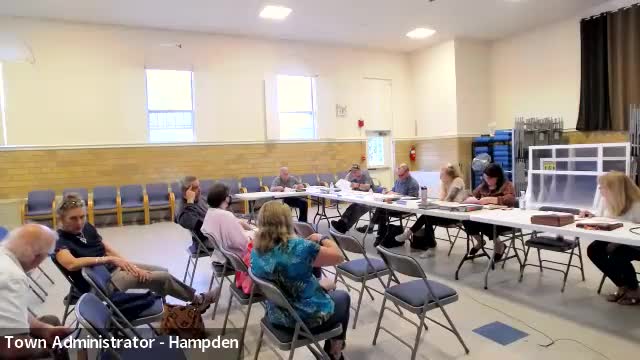Hampden planning board moves ADU amendments to town meeting, clarifies gross floor area and permitting limits
Get AI-powered insights, summaries, and transcripts
Subscribe
Summary
The planning board approved sending accessory dwelling unit (ADU) bylaw amendments to the May 12 town meeting and discussed gross floor area calculation, ADU size limits and permitting requirements including conservation and septic review.
The Town of Hampden Planning Board voted to send proposed amendments governing accessory dwelling units to the May 12 town meeting and clarified several technical points about how the rules would operate if adopted.
Board members discussed how gross floor area (GFA) is calculated for multifamily properties, whether ADUs count toward accessory-building calculations, and which setbacks apply. The board also reviewed whether the draft should reference state law directly and confirmed that conservation, septic and water approvals remain separate permitting requirements.
On GFA, board members confirmed that the calculation uses the area of the largest principal dwelling rather than summing the floor area of all dwellings on a lot for the purpose of ADU sizing. The draft sets a 900-square-foot cap for ADUs in certain circumstances; board members noted an ADU does not count toward the floor-area allowance for accessory buildings. The board clarified that property-line setbacks, not a measured distance from the principal dwelling, govern where a detached ADU may be sited. Board members also noted that ADUs remain subject to conservation commission review and required septic and water approvals where applicable.
Members debated whether to incorporate the Massachusetts statute language directly into the bylaw (a member referenced MGL c.40K) or to cite the statute and rely on the state definition; the board agreed to remove an internal parenthetical definition and rely on the existing statutory framework rather than embedding the full text. Town counsel and other staff sources were cited as available to advise on whether direct statutory language should be included; board members recognized that if state law changes, an embedded statutory definition could require future bylaw amendments.
The planning board made a motion to take the ADU amendments to the May 12 town meeting; another member seconded, and the board voted in favor. Board members said they will prepare a board report and, if the town meeting approves the warrant article, will assemble and send the final materials to the attorney general, with an anticipated planning-board vote on the final letter after town meeting (the board scheduled May 28 to compile its materials).
